The FS S5850-48T4Q is a 10Gbase-T switch with 40GbE ports as well. It is meant for connecting edge devices at higher speeds. In this review, we are going to take a look at the switch but also at some of the cost optimizations FS is using to deliver a lower-cost switch.
FS S5850-48T4Q External Hardware Overview
Looking at the front of the switch, we see that this is a 1U unit with all front I/O and 1.72″x17.32″x16.54″ or 43.6x440x420mm size. This is not a deep switch by any means, but it is also much deeper than some of the short-depth units we review.
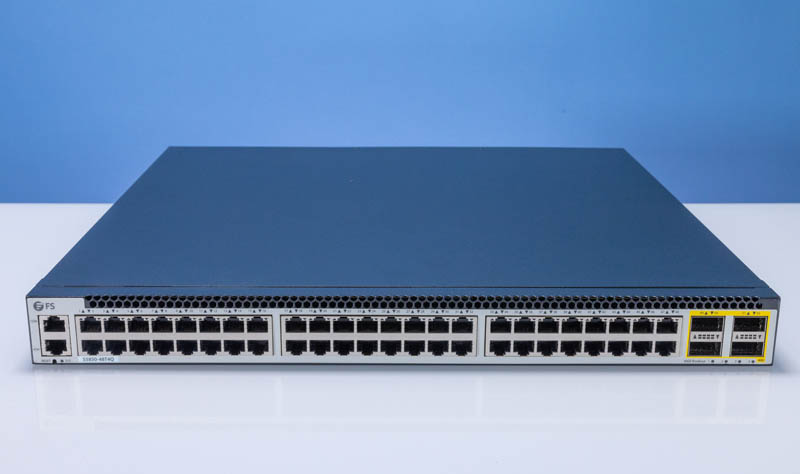
On the left, we have a COM port as well as our out-of-band management port. This is also where we have the reset button and the FS branding.
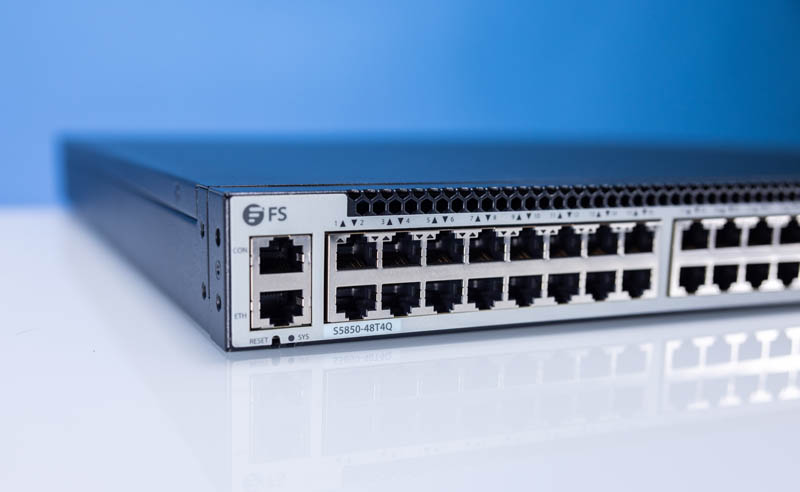
On the right side, we get four QSFP+ ports. These can break-out into 4x 10GbE ports. In 2022, this feels like we would expect 100GbE ports here, but this is based on an older generation switch chip. As a result, these are a bit more limited.
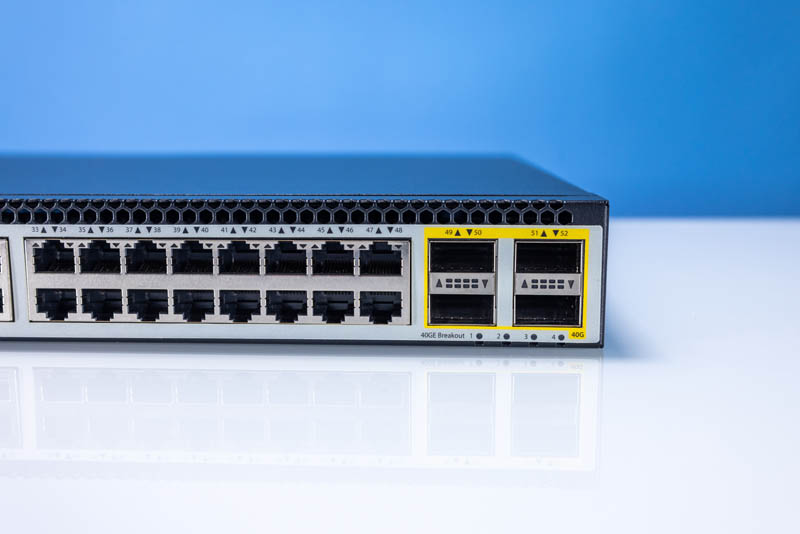
The star of the switch is not the 40GbE ports, though. Instead, it is this array of 48x 10Gbase-T ports. We were able to get 10Gbase-T speeds and 1Gbase-T speeds working perfectly, but we did not see devices connect at 2.5GbE/ 5GbE speeds.
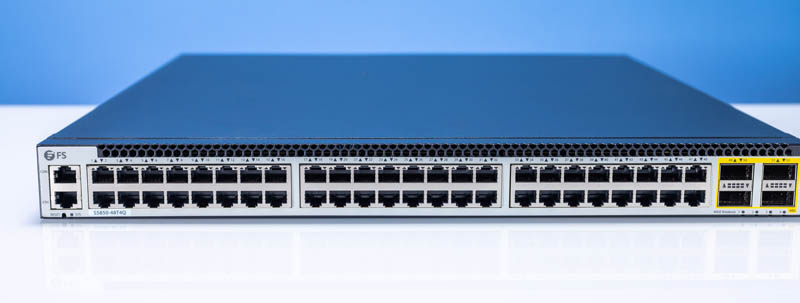
Moving to the rear, there are only fans and power supplies. The fan modules on this one are a bit different. The fans themselves are 4-pin PWM fans. Where things are a bit different is that these fan modules have two side-by-side fans. If one fails, then the action is two remove both fans. This is lower-cost than making independent fan modules, but we wish that were a place where FS spent the money to do so.
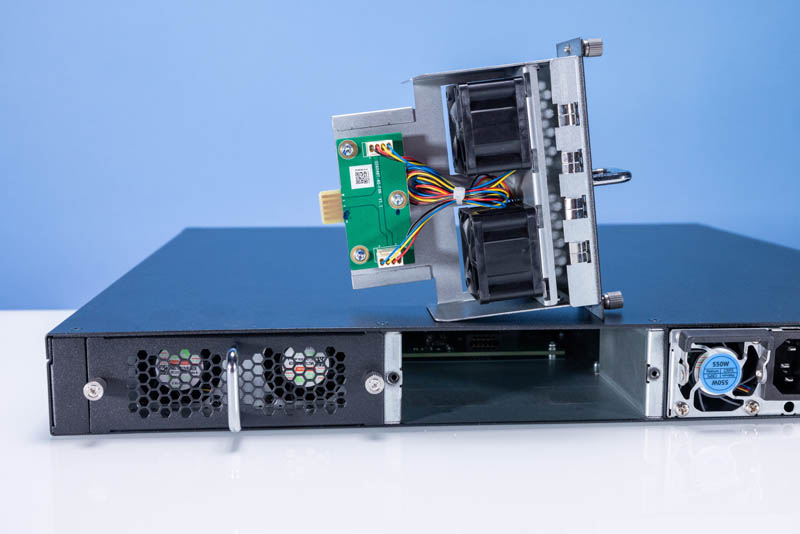
The power supplies are redundant 550W units. These say “Platinum” and are standard CRPS form factor power supplies. They also have more regulatory markings than some other PSUs we have seen in FS switches.
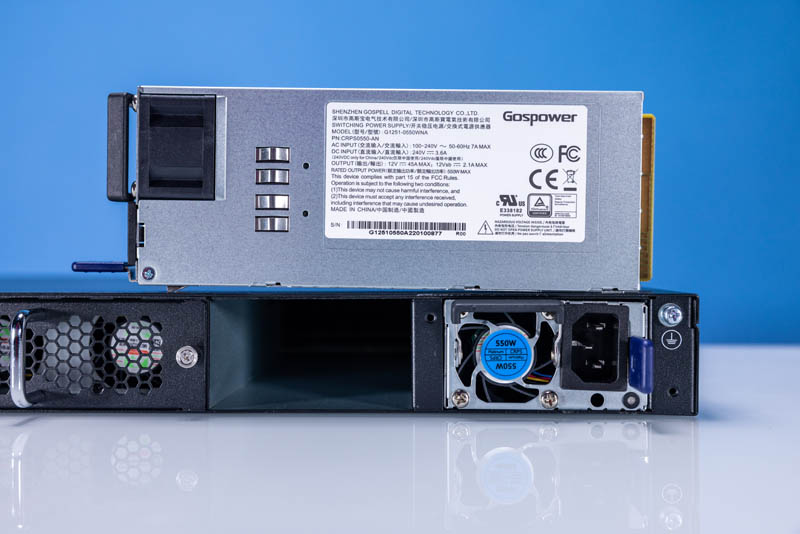
Our unit actually came with a blanking plate over the rightmost PSU spot. We had to remove this to add the second PSU. One item we wish was a bit easier is that the thumb screws are a bit harder to operate. These are retained thumbscrews, but there is a gap in usability between these and OCP-style thumbscrews we see on other switches.
Next, let us get inside the switch and take a look at what powers this unit.

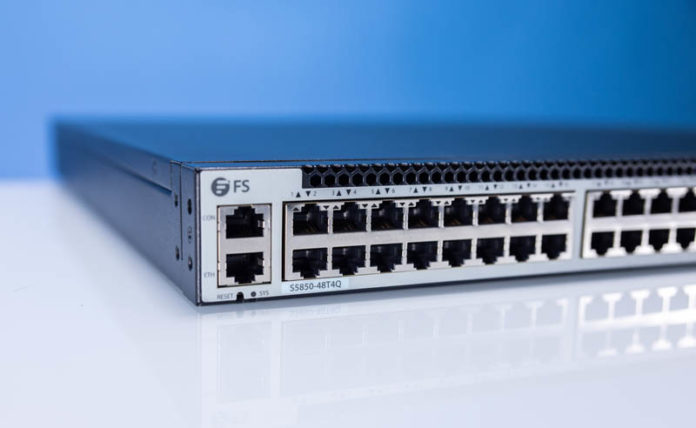
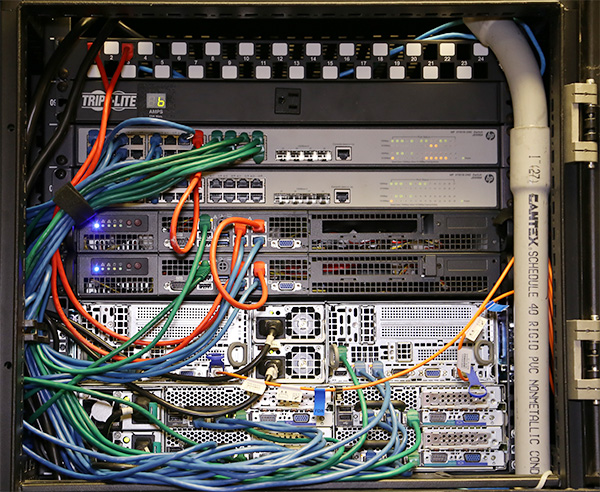
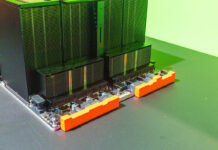
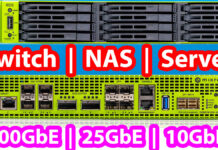
Nothing makes me question product quality like a MTBF with a precision down to a hundredth of an hour at 108,822.22 hours.
FS hardware always feels sketchy, and this thing is no exception. Everything they build seems like a triumph of gray market sourcing coupled with a casual flaunting of regulatory compliance.
Cool to take a peek inside though, even if I’m against the product. Seeing switches popped open is always a treat.
These reviews leave much to be desired. The earlier reviews for switches would put them through their paces, do performance testing, remove heatsinks so that we could look at the Switch NPU/CPU.
Nowadays the reviews read more like product placement or looking at the manufacturer’s brochures :(
The fact that STH is considering $4800 “cheap” ($100/port) is nuts. In 2022, the fact that any 10GbE, especially a non-MultiGbE and/or PoE one @$100/port is just stupid.
This reeks of price fixing. 10GbE is commodity hardware at this point, it should be throwaway chips in every motherboard and edge device. The fact that it isn’t after 3 decades on the market, and almost a decade on the market with faster alternatives pushing it out of the DC space makes me feel like it’s been artificially price inflated.
The memory companies have been sued multiple times for artificially high pricing. Why is nobody looking at the networking companies for the same thing?
While I agree with the above, of note is the alleged latency. I’d like to see that tested.
That’s among the faster switches the big boys offer at considerably higher prices. <700ns isn’t anything to scoff at these days.
Arista’s 7050sx3 is 800+. And I’d be willing to bet that’s not the case across 10/40 interfaces.
If your normal switch vendor has got yearlong lead times I’d say $4800 is what you can price at. There aren’t many chip vendors so I’d get why these are still not cheaper.
I’m more looking at the review comments around passwords, slow web management, and no nbaset and I’m asking why all the FS reviews are fivestar without mentioning those.
Lack of multigig support surely leaves this dead in the water for edge, unless you are running a very niche case where every device has 10gbe support and the infrastructure in place to support it.
You wouldn’t want to waste $100 ports at gigabit speeds.